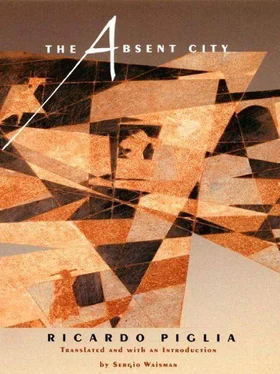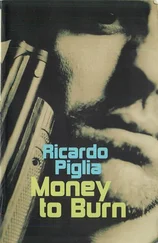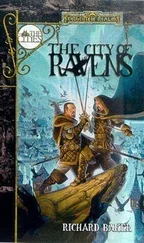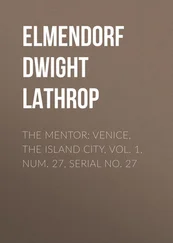“You have lost your sense of reality,” Arana said to her, as if he were reading her mind. Maybe she was thinking out loud.
“This is a place without memories,” she said. “Everyone pretends to be somebody else. The spies are trained to disown their own identities and use somebody else’s memory.”
She thought about Grete, who had become an English refugee who sold pictures in a locale down on the second sublevel. She had been infiltrated, so she buried her past and adopted a fictitious one. She was never again able to recall who she had been. Sometimes, in dreams, she made love to a man she did not know. Her true identity had been converted into unconscious material, episodes in the life of a forgotten woman. She was the best photographer in the Museum. She looked at the world through eyes that were not her own, and this distance showed in her photographs. They had to find her, she could take them to Reyes. The Tano wanted to know who Reyes was.
“He is an ex-professor of English literature who deals in methadone,” Elena explained to him. “He is in charge of the clandestine hospitals and the detoxification shelters.”
Grete believed that she used to be his wife, a young Englishwoman from Lomas de Zamora who had fallen in love with the young professor who taught courses in E. M. Forster and Virginia Woolf. The story was her alibi, she was a disillusioned woman secretly in love with a man on whom she wanted to take revenge. They had to find her. The cellars of the Mercado del Plata connected to the underground streets that crossed beneath Av. Nueve de Julio and the subway passageways of Carlos Pellegrini Station, where all the subway lines of the city converged. That was a point of escape, a nucleus for refugees and rebels, hippies, gauchos, spies, all sorts of ex’s, smugglers, anarchs. To get to the building they had to cross an abandoned parking lot, a no-man’s-land between the shelters and the city. They must surely have already seen them in the alleyway and were now watching them on the closed-circuit screens. She saw herself in the Clinic, the white eye of a camera on the ceiling. She thought Arana was speaking with a nurse behind her. She felt she was falling asleep. She was too tired. The Tano took her by the arm and forced her to keep going, almost running between the abandoned parking meters. It was like crossing a forest. The Irish band The Hunger could be heard through the loudspeakers. It was their new anthem, “The Reptile Enclosure.” They were the children of the children of the nationalist rebels. At seventeen years of age, Molly Malone was the leader of the band, and she had become a superstar singer with her glassy throat. Her brother Giorgio sang backups with his warm tenor voice, but he would go crazy and change the lyrics, sing rap improvisations over the anthems of the Republican Army. The crowds went mad over Molly Malone’s live performances. The concert lasted two hours. The observance personnel had in all likelihood connected their monitors to the broadcasts of channel 9. The Tano thought that luck was on their side and that they might be able to escape. They had one chance in thirty-six. It was always the same. He liked to play roulette because it was a replica of life.
“I’m from Rosario,” he said to the Korean guard at the door. “We have to get through. She’s a patient of Arana’s.”
He might be a policeman. Everyone works for the secret services, they all become spies and confidants and legal assassins and policemen who shoot up as part of their undercover work. (In New York half the addicts are detectives.) The more criminal activity found among Asian refugees, the more Asian refugees that the police must recruit as informants. Insanity of resemblance is the law, the Tano thought. To look alike in order to survive. If he was a government agent, he chose not to disclose it. He let them in and guided them to a stairway, and then to a door, and again to a stairway. The white walls and the lighted stained-glass windows created a strange stillness. The music had ceased.
“This is the Museum,” the Tano said.
The pavilions extended for kilometers on end, with glass cabinets displaying material from the past. Elena saw a room from a boardinghouse in Tribunales, and a man on a low stool strumming a guitar. She saw two gauchos on horseback riding across a line of small fortresses, she saw a man committing suicide on a train seat. She saw a replica of Arana’s consulting room, and again her mother’s face in the mirror. The Tano hugged her. And this she had also seen. The Tano hugging her in a room of the Museum. She saw the replica of the lighted stage with Molly Malone singing the chorus of “Anna Livia Plurabelle” in a feline voice.
“Let’s go,” he said, “we have to get out of here.”
They came out into a television repair workshop. An old man with white hair and a white beard raised his head from a microprocessor. It was Mac. Elena felt that she was about to cry. The Tano opened the back of a microscopic television set and put it down on the glass counter.
“This apparatus is a family relic,” he said, “and I want to keep it running.”
“And what is the problem?” asked the man, who spoke with a German accent.
“It only gets channels from the past.”
The old man raised his head.
“Everyone wants to be a comedian,” he said, and went on connecting the cables of a video recorder that he had to adapt to a closed-circuit.
“She’s Elena,” the Tano said.
The old man was adjusting the three bands of images, his myopic eyes moving astutely across the microscopic circuits that he himself had designed. He looked at her, but did not recognize her.
“We want to get into the factory,” the Tano said.
There was a soft light in the locale, and the rumbling from the subway trains made the ceiling vibrate.
“It’s here,” the old man said.
A group of scientists had deserted the institutes dedicated to atomic investigation that had been built in the mid-1940s. They started with a small repair shop in an abandoned garage. The factory kept growing quietly, scattered across the desert and the provincial towns.
“We keep in contact,” he said. “We are waiting for the right moment to move. There are forty-three of us and we are going to participate in the rebellion.” He opened and closed his left hand, as if he were counting the scientists five at a time. “I cannot say anything else. I do not know anyone.” He looked at Elena and smiled. Then he spoke to the Tano.
“You can take that apparatus away now, it is fixed. Turn it on.”
The tiny images flashed on the screen, and immediately they could see a series of small workshops disseminated across all the towns and small cities of the country. They could see men with white overalls taking apart old radios and rebuilding unused motors.
“What are we going to do?” Elena asked, surprised.
“Nothing,” the old man said. “Get out of here.”
It was Mac, but he did not know her. She did not go near him, she did not want to touch him, she did not want him to touch her. The world of the dead, Dante’s map of the Inferno. Circles and circles and circles.
“So then,” Arana said, “you are dead and in the Inferno. Isn’t that smart.”
“I used to be smart,” Elena said. “Now I’m a machine that repeats stories.”
“The one fixed idea,” Arana said. He gestured for his assistant. A young doctor wearing a white coat and surgical gloves leaned over Elena and smiled at her with a childlike expression.
“We have to operate,” he said. “We have to disactivate her neurologically.”
“He repairs television sets,” Elena said.
“I know,” Arana said. “I want names and addresses.”
There was a pause. The white glass of the cabinet in the consulting room reflected the spinning fan.
Читать дальше












